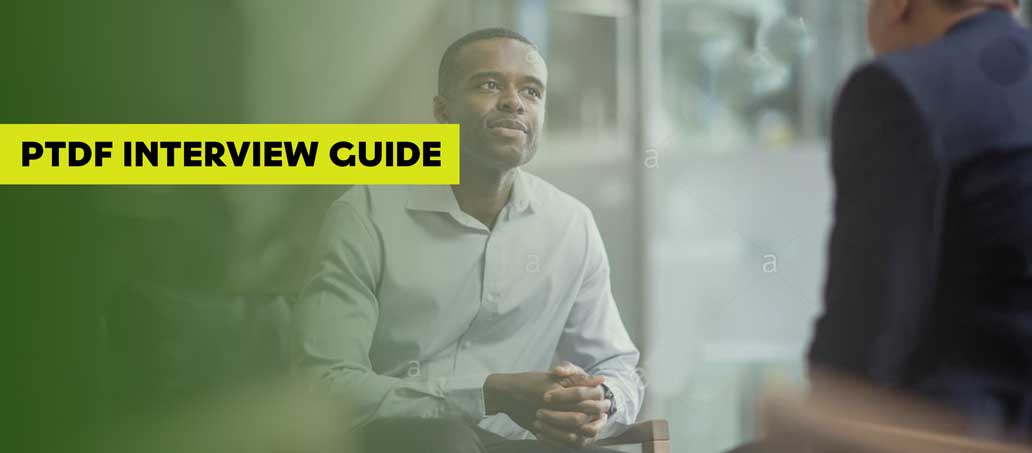Starting with the 2018 award programme, PTDF Scholarship board stopped administering aptitude tests as part of its selection process. An opportunity to face PTDF scholarship interview panel is one you want to make good use of.
Getting dropped after making it to the interviews is a very painful experience. This is particularly so because the candidate somehow feels that after getting shortlisted from among the thousands of applicants who were possibly equally qualified, He or She is now one-inch close to “promise land”. While this may not be wrong, the “bitter truth” is that not everyone who was shortlisted for the interviews will make it to the final award stage. That’s because the process is usually very competitive, coupled with the large number of applications PTDF receives yearly.
PTDF interview panel is usually made up of researchers from the academia, seasoned experts from the industry and representatives of the scholarship body. Also these personnel have their different judgments to pass on your performance, your knowledge of your research area and the overall importance of the proposed study area.
While we’ve tried to be as insightful as possible on this post, we also advise you to get our full ptdf scholarship interview preparation guide to help you familiarize with questions asked on the interview and also give you practical guides on how to answer the questions. You can click here to get the book.
PTDF Scholarship Interview Preparation Guide
A. BEFORE THE INTERVIEW DAY
In order to pass the PTDF interviews, adequate preparation is key. Here are a list of things you should do before the interview day:
-
Review Your Qualifications
Most interviewers start the session by asking you to tell them about yourself. This is where you can discuss your accomplishments, interests, and strengths. Use your answer to highlight things that distinguish you as a candidate. To prepare, think about your background and past achievements. You should also be able to articulate your plans for the future and explain how both the program and the university will help you to meet those goals. Tailor your answers so they fit with the offerings of that particular programme.
Before the interview, you should also look over your application. Try to imagine things you might be asked to explain, such as your research, a related internship, or a poor grade. Answer these questions thoroughly and honestly.
-
Research the University
Thoroughly research each program before your interview. Go to the university and department websites and review all of the information they have online. Specifically look at sections pertaining to curriculum, affiliated programs, and other areas that might be discussed in the interview. Read the course catalogue and any other printed publications available. Familiarize yourself with the mission and goals of the institution. Know what makes them unique. You should also read publications by faculty members in the department and be acquainted with their areas of interest.
-
Research Current Issues in Your Field
For the weeks and months leading up to your interview, you should follow the major issues and current events in your discipline. Read the newspaper regularly. You should also review leading journals in your field. Be prepared to discuss these current issues in your interview. Your stance on an issue is not important. You simply need to show you can debate it intelligently and accurately.
-
Prepare Questions for the Interviewer
Come prepared with five questions to ask the interviewer. They should be specific, thoroughly researched and showcase your knowledge of the program/university/field. They should not be questions that could be answered by visiting the university’s website. These questions will be used to indicate your level of interest in the program. You should also try to ask a question or two that comes up in the course of conversation. Some suggested questions will be given at the end of this write-up.
B. ON THE INTERVIEW DAY
-
Be Punctual
Don’t make the interviewer wait for you. It sets the wrong tone and can predispose the interviewer to perceive you as unprofessional and uncommitted. Furthermore, it may cut into your interview time.
-
Time your movement
Research the interview location ahead of time. Carry a map with you in case you get lost. Bring your phone, but turn it off when you arrive. It’s also helpful to have a notepad, a pen, and a pack of tissues or handkerchiefs.
-
Watch your Attitude
Once you arrive the venue, be friendly and courteous to everyone you meet – interviewers, students, and support staff. You never know if the person you meet on the sidewalk is a member of the interview committee to which you’re going to face. First impressions matter. You don’t want to be perceived as rude.
While you’re waiting, try to stay relaxed. Be patient if things aren’t running on time. You want to appear accommodating, not arrogant.
-
Mind your Appearance
Wear clothing that is comfortable yet professional. You want to look put together and clean. Stay away from overpowering perfumes or lotions. An interviewer should remember what you said, not how you looked or smelled.
-
Watch your Body Language
It is important that your body language reflects your confidence and interest in the course. Smile and make eye contact. Show you’re engaged in the interview and excited with the prospect of attending that particular programme. Try to avoid behavior like slouching, crossing your arms, or fiddling with a pen, as they can be interpreted negatively. Be confident, poised, and personable.
If you need support on your study materials or just to ask us a question, You can chat with a Teststreams support agent using the live chat link below, or send us a quick in-mail.





